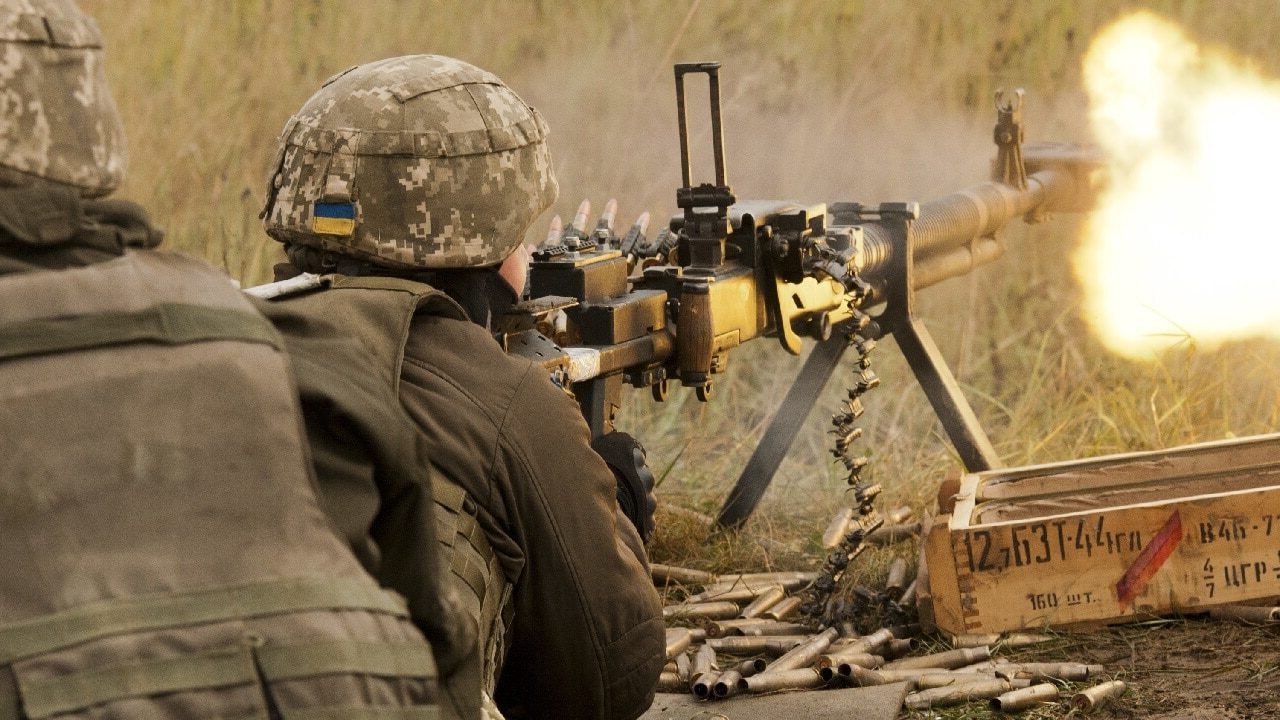A Guerrilla War is Being Waged by Ukraine. Here is the Latest: The below list of resistance incidents is almost certainly incomplete. The Ukrainian armed forces have been extremely active in September, having launched counteroffensive operations in Kherson and Kharkiv provinces. Multiple explosions have taken place every day; and there is no doubt that partisans are involved in some, or all, of these activities. For the sake of accuracy, however, I’ve only listed those incidents for which partisans were expressly given credit or for which the armed forces were not.
These caveats notwithstanding, it’s important to note that resistance has shifted almost entirely from non-violent actions to violent actions. In September, there were four non-violent resistance incidents, nine attacks on property, and 25 attacks on collaborators or Russians.
September 1, Kherson: “Yellow Ribbon” activists distribute leaflets calling for referendum boycott.
September 3, Tokmak, Zaporizhzhya province: upon being arrested, partisan Maksym Makhrynov blows himself up and two Russian soldiers.
September 6, Berdyansk, Zaporizhzhya province: collaborator Artem Bardin, known as the “city commandant,” severely wounded in car explosion. Firefight takes place afterwards.
September 6, Berdyansk: explosion in Slobidka district.
September 6, Enerhodar, Zaporizhzhya province: explosion cuts off water and electricity.
September 7, Melitopol, Zaporizhzhya province: explosion destroys headquarters of collaborationist organization, “We Are Together with Russia,” local branch of the United Russia party.
September 8, Melitopol: collaborator Yuri Onyshchuk, head of the water supply company, killed in bomb blast. Two other collaborators also targets of bombs: a man and a woman taking part in preparations for a referendum.
September 11, Pishchane, Luhansk province: partisans raise Ukrainian flag atop electricity pylon as warning to Russian forces in nearby Starobilsk.
September 12, Kherson: collaborationist rector of Kherson State University, Tetyana Tomilina, severely wounded in bomb blast at home; her bodyguard is killed.
September 13, Mariupol, Donetsk province: partisans ambush and wound three-man Russian patrol.
September 16, Berdyansk, Zaporizhzhya province: collaborationist deputy head of city housing division, Oleh Boyko, and wife Lyudmyla, who headed city electoral commission tasked with conducting a referendum, killed near their garage. Both were shot in the head.
September 16, Kherson: driver of collaborationist minister of social policy, Alla Barkhatnova, killed in explosion. She vows to bring Russia to Kherson even at the cost of her life.
September 16, Luhansk: collaborationist general procurator of the “Luhansk People’s Republic,” Serhii Horenko, and his deputy, Kateryna Stehlenko, killed in bomb blast in his office.
September 17, Melitopol, Zaporizhzya province: bomb explosion destroys railroad tracks near Nyzyany station.
September 17, Chernihiv district, Zaporizhzhya province: bomb explosion destroys railroad tracks near Verkhniy Tokmak station.
September 17, Kherson: partisans post death threats on the Internet against 31 collaborators: Oleksiy Tehimbayev, Kostyantyn Horbachov, Svitlana Solomyana, Oleksandr Vislohuzov, Denys Kostyrya, Tamara Melnykova, Iryna Yalpachyk, Olena Shapurova, Andriy Khrushch, Oleksandr Falko, Kostyantyn Tyurin, Dmytro Trukhin, Anton Trukhin, Kateryna Sonnykh, Ihor Skorobohatko, Iryna Sklyanna, Olha Romashchenko, Nadiya Puchko, Tetyana Prykhodko, Andriy Petrov, Yuriy Onyshchuk, Volodymyr Ovcharenko, Olha Merkulova, Vasyl Kostryba, Serhiy Kostyrya, Nataliya Kozeryatska, Oleh Kvach, Halyna Katyushchenko, Serhiy Zhelev, Nataliya Doloman, and Andriy Boyka.
September 18, Melitopol, Zaporizhzhya province: Denys Stefankov, collaborationist head of quick-response unit of “people’s militia,” killed in bomb blast. Ukrainian official claims Russian secret police was responsible.
September 20, Mariupol, Donetsk province: teenagers arrested for singing Ukrainian hymn in central square.
September 23, Melitopol, Zaporizhzhya province: Oksana and Serhii Deryabin, both employees of the city railroad station, killed in bomb blast.
September 24, Melitopol: bomb explosion in city center.
September 24, Berdyansk, Zaporizhzhya province: bomb explosion in city center. Car near city hall destroyed.
September 25, Kherson: two collaborators killed in explosion, one of whom is Oleksiy Zhuravko, former member of Party of Regions who supported the “referendum” in Kherson. Explosion may have been due to artillery fire.
September 25, Melitopol, Zaporizhzhya province: bomb explosion in city center. Car destroyed.
September 28, Kherson: multiple explosions in city.
September 29, Melitopol, Zaporizhzhya province: car explosion; Olena Shapurova, collaborationist head of city education department unscathed, her husband Roman Dzyuba injured.
Russian dictator Putin has a full-scale guerrilla struggle on his hands. His armed forces are losing men and territory on the battlefield. Russians are fleeing the country so as not to be drafted. Recently mobilized soldiers are being sent to the front as cannon fodder. There are credible reports of anger at Putin within Russia’s elites.
If these trends continue, as they probably will, Russia’s fascist dictator may not be around to see Ukrainian partisans help Kyiv win the war.
Dr. Alexander Motyl is a professor of political science at Rutgers-Newark. A specialist on Ukraine, Russia, and the USSR, and on nationalism, revolutions, empires, and theory, he is the author of 10 books of nonfiction, including Pidsumky imperii (2009); Puti imperii (2004); Imperial Ends: The Decay, Collapse, and Revival of Empires (2001); Revolutions, Nations, Empires: Conceptual Limits and Theoretical Possibilities (1999); Dilemmas of Independence: Ukraine after Totalitarianism (1993); and The Turn to the Right: The Ideological Origins and Development of Ukrainian Nationalism, 1919–1929 (1980); the editor of 15 volumes, including The Encyclopedia of Nationalism (2000) and The Holodomor Reader (2012); and a contributor of dozens of articles to academic and policy journals, newspaper op-ed pages, and magazines. He also has a weekly blog, “Ukraine’s Orange Blues.”

